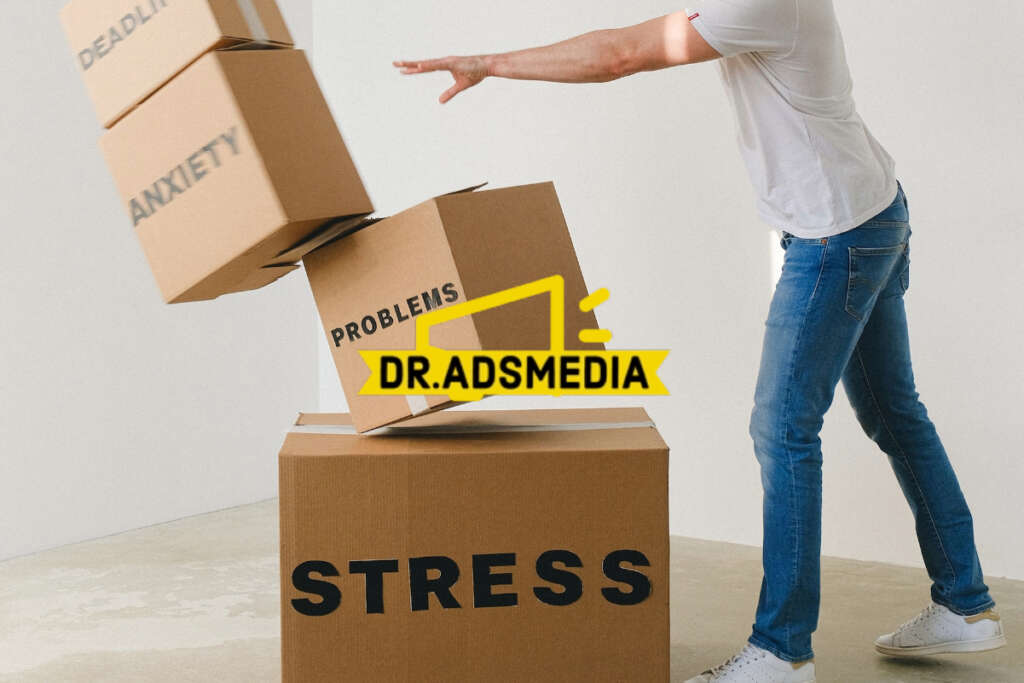How not to get frustrated is a question for many people, because it is related to productivity and comfort in living life. If you feel frustrated, try to calm down, take the time to read this article
You need to know that frustration is a natural thing that most people experience. Because, frustration signifies that you are still alive, or that you are going through a phase of psychological development. Both in terms of work and the way you deal with a problem.
Frustration is a feeling of dissatisfaction, disappointment, or inability to face or achieve something you want. This is an emotional reaction that arises when you encounter obstacles, difficulties, or situations that do not match your expectations or desires. Feelings of frustration can arise when you feel you have no control over the situation or when you feel hindered in achieving your goals.
Examples of situations that can cause frustration include:
- Facing difficult or complex tasks.
- Unable to achieve goals or expectations that have been set.
- Stressful social interactions or conflicts.
- Excessive physical or mental fatigue.
- Technical or logistical constraints in a task or project.
- Lack of support or appreciation from others.
Frustration is a natural emotional response that can be felt by anyone, and most people have already felt it. In any case, it is important to learn to manage feelings of frustration so as not to negatively impact your mental and physical well-being.
How Not to Get Frustrated
Overcoming frustration can be challenging, but there are strategies that can help you manage those feelings. Here are 11 tips that might help you answer how not to get frustrated :
1. Know Your Emotions
First, realize that you’re feeling frustrated. Recognize those feelings and accept that they are a natural part of life. The good news is that frustration makes you more advanced and adds new skills.
Take time to get to know yourself. “Oh I’m angry”, Oh I’m tired” please come, but it can’t destroy me, and it can’t change the value of my life. I will stay strong through this.
2. Rest and Relax
If the situation that frustrates you feels too intense, give yourself time to rest and relax. Try relaxation techniques like meditation, deep breathing, or yoga. Remember the good times and see the natural scenery.
To do meditation, try to adjust your breath, 5 seconds inhale, 5 seconds exhale. Don’t think about anything, lighten up and close your eyes. Try not to fall asleep, do it for 20 minutes. This is to relieve the tension in your body.
3. Talk to Someone
Talking to friends, family, or professionals can help you feel heard and understand that you’re not alone in these feelings. Choose the right and wise interlocutor. If possible, try talking to an expert.
For example, financial problems, talk to your friend who works in finance. Or you visit a psychologist to understand your current emotional state. So you can manage your emotions appropriately.
4. Set Expectations
Just think about what’s really causing your frustration. Is it internal (such as unrealistic expectations) or external (difficult situations)?
Some times, frustration arises because of unrealistic expectations. Try to be more realistic in setting your expectations of yourself and the situation. Distract yourself from the things you can’t control, and focus on the actions you can’t control.
5. Solution Focused
Instead of constantly ruminating on problems, focus on finding possible solutions. Small steps toward a solution can help reduce feelings of frustration.
Describe the problem from upstream to downstream, what caused it to become a problem, and how it arose. Take the option with the lowest risk but must be prepared to face the risk. Make your mind accept all the consequences without fear because you are ready.
6. Practice Stress Coping Skills
The best way to how not to get frustrated is to practice regulating emotions. Frustration often arises when you feel like you can’t control your time or results. Learning to be patient can help reduce overreactions to situations.
Learning stress coping skills, such as time management, effective communication, and problem solving, can help you deal better with frustrating situations.
7. Focusing on The Positive
Try to identify positive aspects in difficult situations. Focusing on the good things can help neutralize feelings of frustration. Take positive wisdom from every unpleasant event.
You can motivate yourself for the difficult circumstances you are experiencing. Because the difficult circumstances you experience and you solve can make the experience and yourself more qualified.
8. Learning from Young Children
You definitely don’t remember when you were a baby and started growing into a child who could walk. Imagine if you used to be frustrated during the learning phase, of course you would not be able to walk like now. Young children always focus on their growth and development, standing, falling to their feet again.
For that, try to respond to problems from a positive perspective, confident that you can get through them with the help of God, nature, and those closest to you. It seems unrealistic, but that’s life. Your brain isn’t created to solve the world’s problems, it means you need someone else’s help.
9. Lack of Trust
Just like the infant to toddler phase, babies who learn to walk always believe that their parents will catch him when he falls. As we mature, we begin to lose confidence about our abilities and our “helping angels.”
Believe me, everyone has the same problem, even heavier. Then, what makes them confident and convinced. Because they believe that they are not alone, there is a god who always helps us even if we are not as good as what god wants. Be grateful and believe me.
10. Problems Only Occur in The Mind
The human brain is formed of millions of cells and goes through the process of learning. For the humanistic school, humans learn from the advice of others and what others do. As for the behavioristic school, humans learn from what they do during life and the consequences of their behavior.
You will become depressed if you think the problem must be solved by yourself and you feel that if you fail then other people’s responses will be bad about you. Not to be lazy or run away from reality. Instead, you have to face the problem as much as possible without having to think about the results.
11. Get Enough Sleep
You must have felt tired and sleepy, when you are sleepy, you will have difficulty thinking quickly and precisely. Well, it’s the same when you lack rest. You may quickly get frustrated with trivial matters.
In these cases, you need to plan a consistent sleep pattern. Eliminate distractions from smartphones, television and other activities that waste your downtime. Sometimes you are looking for fun to entertain yourself, but it adds to the problem of your rest hours.
12. Nutritious Food
Your body is made up of many cells that need nutrients from food and drink. Try more vegetables and fruit. If you have trouble finding a healthy diet, consider taking multivitamins such as vitamin C, vitamin E and B complex.
Choose foods with high protein, this will repair your body’s damaged cells. Avoid foods with high saturated fat. Because saturated fat is proinflammatory which makes the body weaker.
13. Exercise
Exercise can help reduce stress and negative emotions. Going for a walk, running, or doing your favorite type of exercise can help release tension. Exercise will increase endorphins that make you feel happy. Man is a creature of nature that needs regular physical activity. That way you will feel a fresher body and a fresher mind.
Conclusion
In conclusion of how not to get frustrated, frustration is a feeling of dissatisfaction and disappointment that arises when facing obstacles or situations that do not match our expectations or desires. It is a natural emotional response that can be experienced by anyone in a variety of life situations. To cope with frustration, it’s important to recognize and accept those feelings, as well as develop strategies to manage emotions well.
By maintaining mental balance and responding wisely to situations, we can reduce the negative impact of frustration in daily life. If feelings of frustration persist or interfere with your well-being, consider seeking help from a mental health professional.
Also Read : Healthy Emotional Spirituality: Balance and acceptance of Life


